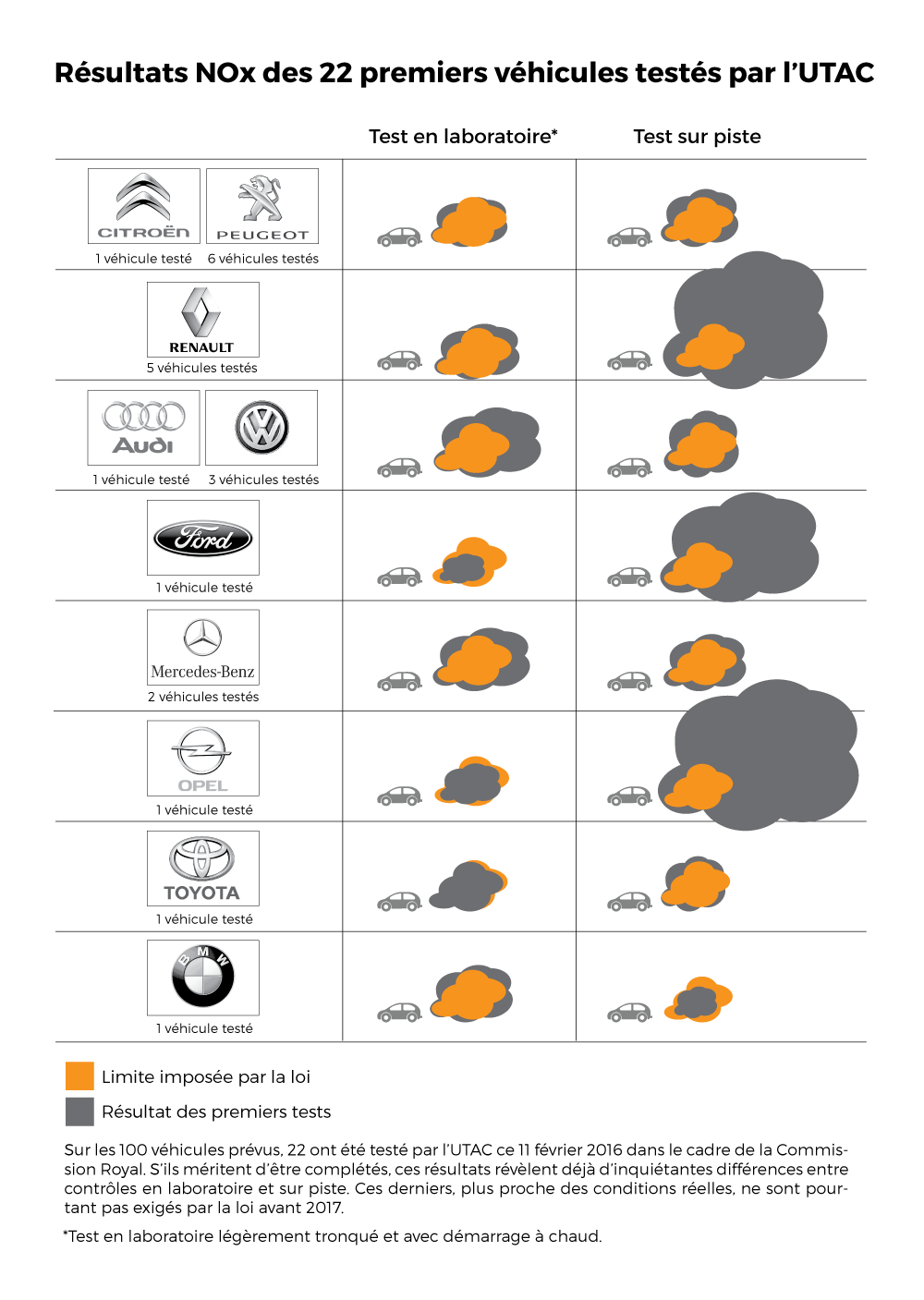
Interested in this kind of news?
Receive them directly in your inbox. Delivered once a week.
The independent technical commission was set up following the Volkswagen scandal and fears that VW’s rigging of emissions testing procedures might be happening at other carmaking companies. The commission includes representatives from two environmental NGOs, France Nature Environment (FNE) and Réseau Action Climat (RAC), which were unhappy that, nearly four months into the commission’s work, no statement on any findings had been made public. So the two teamed up with T&E to make the findings public, albeit without giving any figures.
They show that ‘alarming’ discrepancies have been found between emissions data taken from laboratory tests and emissions from on-road driving. More surprising is that similar discrepancies have been found among different cars from the same maker. A statement from T&E’s French members said the findings confirm suspicions of ‘overoptimisation’ of the laboratory testing procedure and show the need for a test procedure reflecting real-world conditions.
The two organisations said the Royal Commission must explain unambiguously why pollution control systems are failing to comply with the law, and what steps should be taken to end this.
Importantly, the discrepancies push certain vehicles over acceptable emissions limits, while registering them as being within the legal limits. In some cases the emissions registered are three, five or even 10 times the permitted limit.
Testing was done on 22 diesel vehicles from 10 different brands. The commission’s work is continuing, and it has summoned representatives of Ford, Renault, Opel and BMW to give evidence.


